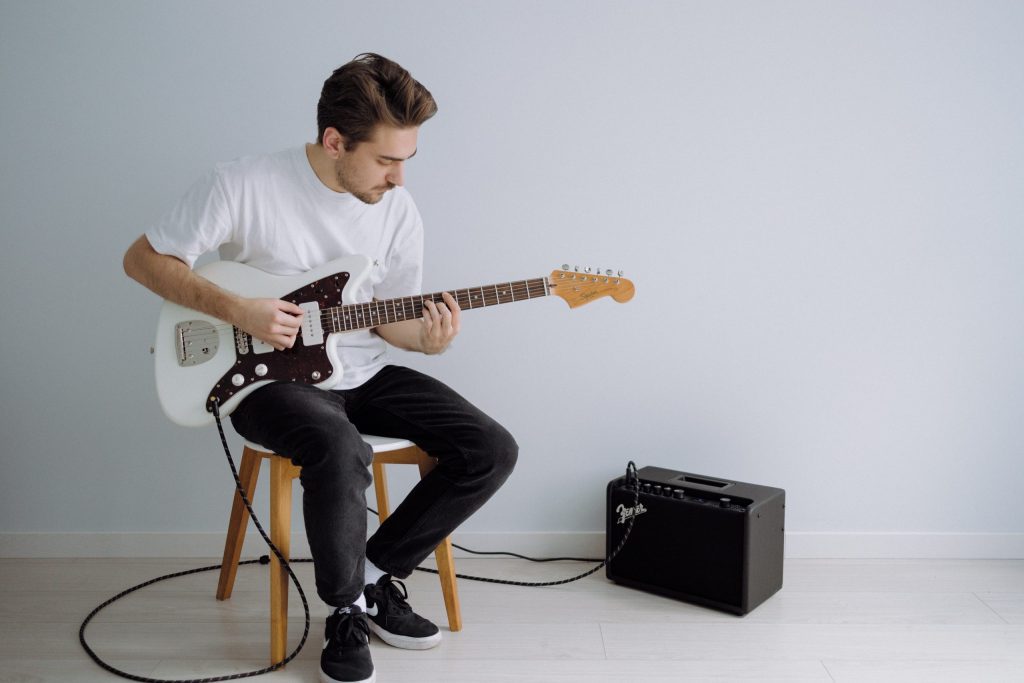What Are The Main Differences Between Private And Group Guitar Lessons?

I am often asked about the differences between group and private guitar lessons. I speak to many parents who have varying opinions on the matter, some of which have a clear distaste for group learning. But something I’ve learnt over the years is that these two types of learning a actually quite similar, particularly with the way we teach here at UGA (probably because most of our lesson time for beginners focuses on playing songs). So let’s weigh up Group vs Private lessons once and for all!
The Similarities
- Students still get a chance to play on their own.
- Students and parents still get all the trimmings that we offer here at UGA; a trained tutor, Ultimate Guitar Method, online login resources, progress reports etc.
- Students still learn what they would regularly learn in Private lessons.
- Lessons are still 30 minutes in length. 60 minute lessons can be arranged, however they are less common for groups.
- Teachers are still able to help students one at a time.
- Our lesson times still focus largely on songs and playing them along with the music. This is one main reason why group lessons aren’t that different to private.
- Students still learn the same content; songs, scales, Ultimate Guitar Method, chords, theory, sight reading and much more.
The Advantages
- Group rates are more affordable.
- Students learn from other students. After all, iron sharpens iron.
- Groups can play ensemble pieces. This is where each guitarist plays something different, all at the same time. There will be multiple layers of sound, for example chords, melody, a riff and a bass line.
- Students tend to learn rhythm faster.
- Meet new people and make friends.
- Builds student’s self confidence.
- Students learn performance and band related skills.
- Some students learn faster due their competitive nature.
The Disadvantages
- Disruptive students can impede group progress.
- Setting up can take a little longer, particularly if students don’t tune their guitars before hand.
- There’s some reduced time for individual attention. This mainly impacts those who are experiencing great difficulty on the guitar, or who are wanting to learn something different to the rest of the group. A good example of this is to imagine a school teacher with a class full of students, but there’s one student in particular who’s always falling behind because he doesn’t understand the work. This student would be better suited for private lessons.
The Conclusion
We’ve taught literally hundreds of students in groups and privately – both of which work. One isn’t better than the other, they’re just different. And different students will be better suited to one or the other, which is largely dependent on the characteristics of the student and the approach taken by the tutor.





Responses